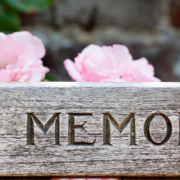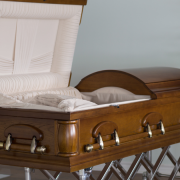The Wake: A Gathering of Remembrance
A wake is a traditional gathering held to honor the life of a deceased person. It typically involves family and close friends coming together to share memories, offer condolences, and support one another during a time of grief. While the customs and traditions surrounding wakes can vary widely across cultures and regions, the core purpose remains consistent: to provide a space for mourning and celebrating the life of the departed.
When to Schedule a Wake
Traditionally, a wake was held in the home of the deceased before the funeral service. This allowed for a vigil and prayer during the night. However, modern practices have become more flexible. Many families choose to hold a wake after the funeral service, often referred to as a funeral reception. This allows attendees to gather and support one another following the formal ceremony.
Ultimately, the decision of when to schedule a wake depends on the family’s preferences and the circumstances surrounding the death. Some factors to consider include:
- Cultural and religious traditions: Certain cultures and religions have specific customs regarding the timing of wakes.
- Practical considerations: Factors such as availability of venues, catering, and family members’ schedules can influence the timing.
- Emotional needs: The family’s emotional state may dictate whether a wake is held immediately after the death or at a later date.
What to Include at a Wake
A wake is an opportunity to create a meaningful and comforting atmosphere for those in attendance. The specific elements included will vary depending on the family’s wishes and the deceased’s personality. However, some common elements include:
- Food and beverages: Offering refreshments is a traditional aspect of wakes. The type of food and drink can range from simple finger foods to full meals, depending on the scale of the gathering.
- Photographs and memorabilia: Displaying photos and personal items of the deceased can help to create a warm and inviting atmosphere. Sharing stories and memories associated with these items can be a comforting way to honor the departed.
- Guestbook: Providing a guestbook allows attendees to express their condolences and share messages of support with the family.
- Music: Music can evoke emotions and create a specific atmosphere. Choosing songs that were meaningful to the deceased or provide comfort to the mourners can enhance the overall experience.
- Eulogies or speeches: Sharing stories and memories of the deceased can be a powerful way to celebrate their life. Encouraging family and friends to speak can create a sense of community and support. Here are some tips on writing a eulogy.
- Religious or spiritual elements: Incorporating religious or spiritual elements into the wake can provide comfort and solace for those who find solace in their faith.
It’s important to remember that the primary purpose of a wake is to provide a space for grieving and support. While it’s essential to consider the practical aspects of planning such an event, the focus should ultimately be on honoring the life of the deceased and creating a meaningful experience for the family and friends.











